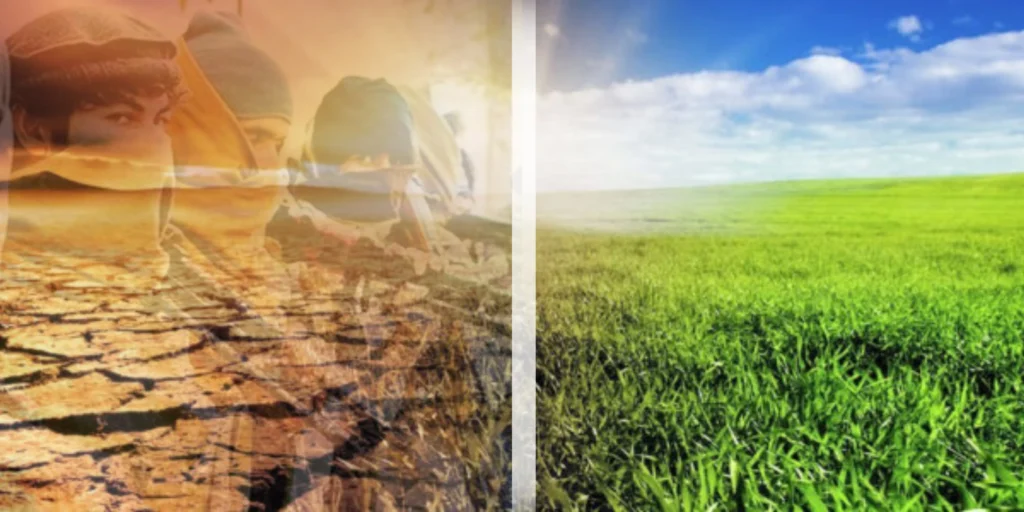Pakistan remains a low-emissions country, contributing less than 1% of global greenhouse gases, yet is among the top 10 most climate-vulnerable nations globally. The irony is that the G20 countries, which include leading emitters like China, the United States, and India, account for over 75% of global greenhouse gas emissions. Despite their vocal commitments to climate action, many in the G20, including India, have been slow to meet their emission reduction targets, perpetuating a global environmental crisis that disproportionately affects Pakistan and other vulnerable nations.
Pakistan’s Climate Vulnerability and Low Emissions
While Pakistan’s carbon footprint remains minimal, with per capita emissions among the lowest worldwide, the country faces catastrophic climate-induced destruction. Floods, heatwaves, and droughts have become recurrent, severely impacting agriculture, livelihoods, and infrastructure. The agricultural sector, which employs nearly 40% of the population, is particularly vulnerable, with crop yields expected to decline significantly if climate change continues unchecked.
G20 Emissions: The Disproportionate Impact
The G20 countries are responsible for approximately 75% to 78% of the world’s carbon emissions. Among them China leads with about 35.3% of G20 emissions, United States accounts for roughly 15%, India contributes about 8.7%, The European Union collectively emits around 8.5%, Other major contributors include Russia (6.4%), Japan (3%), and Saudi Arabia.
Emissions from G20 countries continue to rise or plateau at dangerously high levels despite international pledges, with many nations falling short of targets required to keep global temperature rise below 1.5°C. India, while adopting emission intensity targets, still has one of the fastest-growing emission profiles globally due to rapid industrialization. High-income G20 countries tend to have far higher per capita emissions, exacerbating global inequalities in climate responsibility.
Security Threats
Besides these challenges, Pakistan faces unprecedented terror threats, which undermine resilience and governance. Attacks by groups like the Tehreek-e-Taliban Pakistan (TTP) and the Balochistan Liberation Army (BLA) surged dramatically in 2024, with a 70% rise in terrorist incidents over the previous year. This surge has resulted in over 850 fatalities, significantly straining security forces and complicating disaster response capabilities.
Floods and Cross-Border Water Releases
Adding to Pakistan’s woes, recent flooding in Punjab has been worsened by the release of large volumes of water from India’s Ravi River system. India’s dam and barrage releases have caused severe flooding in Pakistani territories, especially in districts like Lahore and Multan. The affected areas have seen mass displacement, damage to critical infrastructure, and increased health risks. This water release has struck amid intense monsoon rains, exacerbated by climate change, highlighting vulnerabilities tied to water disasters and regional geopolitical tensions.
The Compounded Crisis
These regional water disputes exacerbate Pakistan’s exposure to climate extremes, and the failure of upstream countries to provide timely and transparent water release information has led to devastating floods with widespread socioeconomic impacts. Meanwhile, persistent security threats erode the state’s capacity to respond effectively and build resilience against climate and disaster risks.
Conclusion: The Urgency of Climate Justice
Pakistan’s crisis illustrates the deep interconnection between climate vulnerability, geopolitics, and security. Despite being one of the least responsible countries for global emissions, it continues to endure the brunt of climate change consequences, exacerbated by regional water management conflicts and growing militancy.
Meanwhile, G20 nations, as the primary greenhouse gas emitters, carry an outsized responsibility for swift emissions reductions and supporting climate adaptation and disaster resilience in vulnerable countries like Pakistan. Only through urgent, equitable global climate action paired with peace and cooperation can the worst impacts on nations like Pakistan be mitigated.



